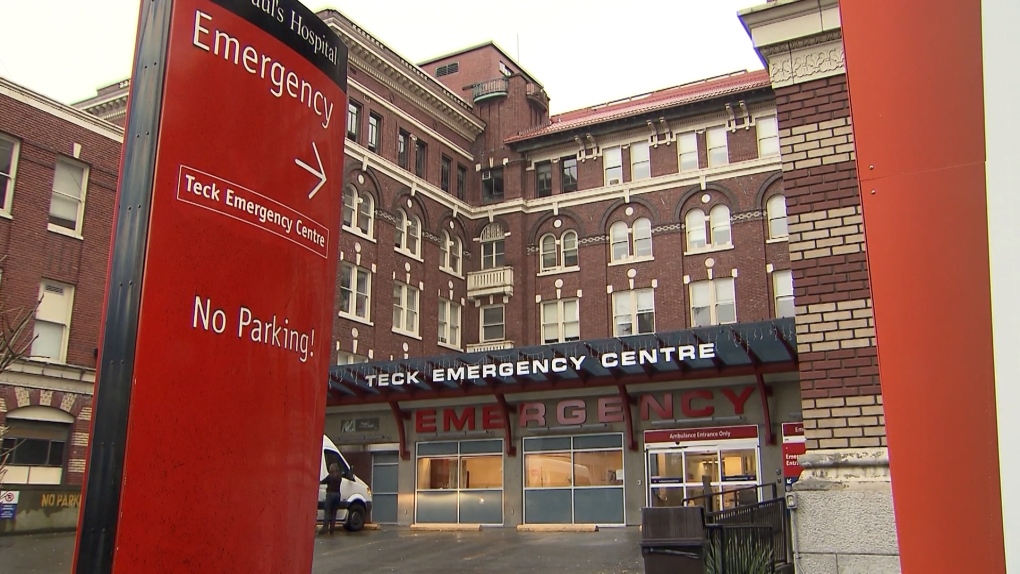Number in B.C. hospitals with COVID-19 drops to lowest level in almost 4 months

The number of people in hospital with COVID-19 in B.C. fell below 200 on Thursday for the first time in nearly four months.
The B.C. Centre for Disease Control provided only limited updates on COVID-19 data over the summer, but its last public update showing fewer than 200 people in hospital was in early August, when there were 76 people hospitalized – the lowest reported total in roughly two years.
By the start of September, when the BCCDC returned to more-frequent reporting, hospitalizations had more than tripled to 241, and had remained at that level or above it in every update since, until Thursday.
 The number of people in B.C. hospitals with COVID-19 in 2023, as reported by the B.C. Centre for Disease Control, is shown. (CTV)
The number of people in B.C. hospitals with COVID-19 in 2023, as reported by the B.C. Centre for Disease Control, is shown. (CTV)
The decline in the hospitalized population comes despite indications of rising COVID transmission seen in wastewater surveillance around the province.
The BCCDC's summary of wastewater data for the most recent epidemiological week, which ran from Nov. 12 to 18, describes levels of SARS-CoV-2 – the coronavirus that causes COVID-19 – as showing "variable increases" in the Fraser Health and Interior Health regions, as well as in Prince George.
Levels have "plateaued" in the Vancouver Coastal Health region, while data from Island Health has been largely excluded from consideration for the last several months.
Wastewater surveillance has also detected increases in Influenza A and RSV concentrations at several treatment plants in recent weeks, according to the BCCDC, which says test positivity for RSV has been increasing and is "above pre-pandemic historical averages" so far this year.
For COVID, test positivity continued to decline in the week that ended Nov. 18, falling to 11.6 per cent from 14.3 per cent the preceding week.
Correspondingly, the number of new COVID infections detected through lab-based testing during the week that ended Nov. 18 was also down, with 357 new positive tests, a decrease from 478 the week before.
These trends, like the declining hospitalized population, contrast somewhat with the wastewater surveillance data, which continues to show increases.
Because the vast majority of B.C. residents do not qualify for lab-based testing for COVID-19, the trends in hospitalizations, test positivity and new infections generally reflect only the subset of the population that can access testing, which is generally those at greatest risk of severe illness.
Wastewater data is more reflective of the trend in transmission among the general public, though both sets of information are useful for determining the relative severity of the disease burden in B.C. at any given time.
CTVNews.ca Top Stories

2nd woman found dead in English Bay: Vancouver police
For the second time in as many days, a woman's body was found near Vancouver's shoreline Monday.
2 Albertans accused of threatening to kill Trudeau, Freeland, Singh
Men from Edmonton and Calgary are accused of threatening to kill some of Canada's top government leaders.
Athletes show off stylish and expensive team clothing for the 2024 Olympic Games
Canadian athletes attempting to reach the podium at the Paris 2024 Olympic Games will also be looking fashionable for the entire world to see.
Harris has support of enough Democratic delegates to become party's presidential nominee: AP survey
Vice-President Kamala Harris has secured the support of enough Democratic delegates to become her party's nominee against Republican Donald Trump, according to an Associated Press survey taken in the aftermath of President Joe Biden's decision to drop his bid for re-election.
Four suicides in New Zealand linked to Ontario's Kenneth Law
New Zealand's coroner has ruled that four of its citizens died after ordering products from an Ontario man who is facing murder charges for selling poisonous substances.
Toronto woman charged with voyeurism after taking 'intimate' photos during massage: police
A Toronto woman who allegedly took 'intimate' photos of an individual who was getting a massage has been charged with voyeurism, police say.
IN PICTURES Here's what Calgary's new event centre 'Scotia Place' will look like
The name of Calgary’s new event centre was unveiled on Monday. The arena will be called Scotia Place.
Harris steps into the limelight. And the coconut trees and memes have followed
If you're trying to get up to speed on Vice President Kamala Harris' swift emergence as Democrats' possible nominee this fall, you really need to know your memes.
These are the four leading vice-presidential picks for Kamala Harris' campaign
No one knows the importance of selecting the right running mate better than Vice President Kamala Harris.
































